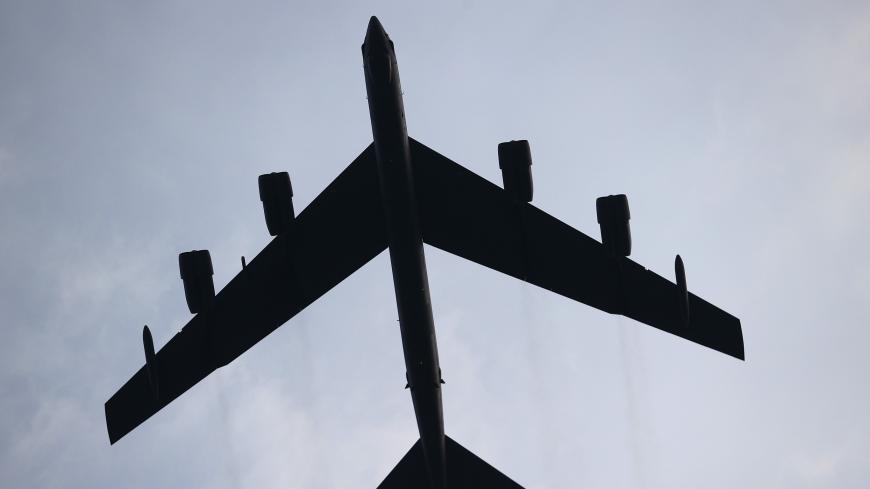The US Air Force on Thursday launched the second short-term deployment of B-52 heavy bombers to the Middle East in less than a month as part of efforts to deter potential hostile Iranian military activity as Washington reduces its military presence in Iraq and Afghanistan.
The flight by two B-52 Stratofortress crews from Louisiana to the Levant comes less than two weeks after Iranian Supreme Leader Ayatollah Ali Khamenei called for retaliation for the assassination of a senior Iranian nuclear scientist in an attack officials in Tehran have blamed on Israel. The deployment also comes just shy of a year since the United States assassinated Iranian Maj. Gen. Qasem Soleimani in Baghdad.
The US Central Command is also moving forward with plans to reduce its presence in Afghanistan by roughly half and to pull some 500 of its 3,000 troops in Iraq by mid-January on orders from President Donald Trump.
The head of US forces in the Middle East, Gen. Kenneth “Frank” McKenzie, said in a statement that Thursday's nonstop strategic bomber mission demonstrated Washington’s commitment to regional partnerships and “our shared commitment to regional security and stability.”
CENTCOM also said the mission was “designed to deter aggression.”
"We do not seek conflict, but we must remain postured and committed to respond to any contingency or in opposition to any aggression,” McKenzie said. Later in the day, McKenzie told Defense One that CENTCOM still sees Iran's strategic ambitions as the greatest threat to stability in the Middle East.
US officials have accused Iran of transferring missile hardware into Syria, Iraq and Yemen in coordination with local proxy forces.
Last month, The New York Times reported that Trump had consulted with top officials — including Secretary of State Mike Pompeo, Vice President Mike Pence and Acting Defense Secretary Chris Miller — about options to strike at Iran’s nuclear program, something Israeli officials have pushed their American counterparts to do in the past.
Two weeks later, Iranian state media announced Mohsen Fakhrizadeh, believed to be the country’s top nuclear scientist, had been killed. Israel has not claimed credit for the attack and it remains unclear whether US officials had foreknowledge.
Iran’s government has publicly violated the uranium enrichment limits set by the 2015 nuclear deal since the Trump administration unilaterally walked out of the international agreement in 2018. It has also constructed an underground annex at its main nuclear facility at Natanz, though an International Atomic Energy Agency report last month suggested Tehran is at least months away from being able to produce weapons-grade uranium.
Just days before Fakhrizadeh was killed last month, the Pentagon ordered the USS Nimitz aircraft carrier to return to the Persian Gulf from the Indian Ocean, where it had conducted exercises with India's navy. A spokeswoman for the 5th Fleet, Cmdr. Rebecca Rebarich, said at the time that no specific threat had prompted the return.
The Associated Press on Monday cited a senior official as saying the region’s security situation necessitated the carrier remain in the Middle East “for some time to come.”
Thursday’s bomber flights follow another “short-notice” B-52 deployment to the region last month. That overflight came as Pompeo toured the Middle East amid a Trump administration initiative to convince regional leaders to normalize ties with Israel.
The push, dubbed the Abraham Accords, is part of Washington's strategic goal of bringing Middle Eastern governments into a cooperative defense and security relationship with the US and Israel to deter Iran’s activities in the region.
The Trump administration is moving forward with plans to sell up to 50 advanced F-35 fighter jets and 18 armed drones to the United Arab Emirates following Congress’ failure yesterday to pass a measure that would block the proposed transfer.
On Thursday, Trump announced that Morocco would become the most recent country to normalize relations Israel as part of a deal in which the United States is to recognize Rabat’s sovereignty over the disputed Western Sahara.
American B-52s were previously deployed to the region after the killing of Soleimani on Jan. 3.






